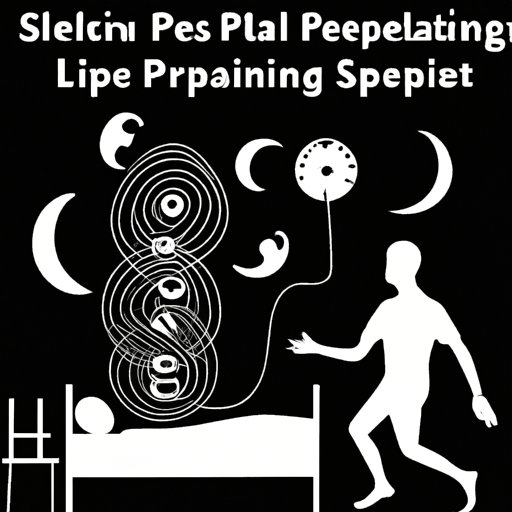
Introduction
Sleep paralysis is a phenomenon where an individual is unable to move or speak during the transition between waking up and falling asleep, resulting in a sense of being paralyzed. This can often be accompanied by hallucinations and a feeling of pressure on the chest, which can greatly impact one’s mental and physical well-being. If you’re someone who is struggling with sleep paralysis or have experienced it before, this article will offer you self-help techniques and medical treatment options to help you manage and overcome it.
Understanding Sleep Paralysis
Sleep paralysis is a type of parasomnia, a sleep disorder that consists of abnormal behaviors during sleep. It’s believed to be caused by a disruption in the normal sleep cycle that occurs during rapid eye movement (REM) sleep, preventing the body from entering deep sleep stages. This can be due to factors such as anxiety, depression, poor sleep habits, and sleep disorders like narcolepsy. Symptoms of sleep paralysis can vary from person to person, with some experiencing mild symptoms while others may experience more severe ones.
Self-Help Techniques to Manage Sleep Paralysis
While sleep paralysis can be scary and unsettling, there are self-help techniques you can use to manage it. Firstly, practicing meditation and relaxation techniques can help calm the mind and body before bed, reducing the likelihood of sleep paralysis. Changing sleeping positions can also disrupt the sleep cycle and help prevent the onset of sleep paralysis. Prioritizing regular sleep by setting a consistent bedtime routine can also help to reduce the risk of experiencing sleep paralysis.
Medical Treatment Options
If self-help techniques aren’t working or you’re experiencing severe sleep paralysis, medical treatment may be necessary. Prescription medication such as antidepressants and sleep aids are sometimes used to treat sleep paralysis. Over-the-counter medications such as melatonin supplements or antihistamines may also be recommended to manage symptoms. However, it’s important to speak to your doctor about the potential side effects and effectiveness of these medications before taking them.
Psychological Strategies
Psychological strategies can also be used to manage sleep paralysis. Therapy options such as cognitive-behavioral therapy (CBT) and exposure therapy can help manage the fear and anxiety associated with the condition. By managing psychological factors, sleep paralysis can be reduced or even eliminated altogether.
Lifestyle Changes
Lifestyle changes such as reducing caffeine and alcohol consumption can help manage sleep paralysis symptoms. Caffeine can disrupt sleep and exacerbate anxiety, increasing the likelihood of sleep paralysis. Dietary changes and nutritional supplements may also be beneficial in managing sleep paralysis.
Mind-Body Connection Focus
Finally, focusing on the mind-body connection can help manage sleep paralysis. Mindfulness practices such as yoga and aromatherapy can help calm the mind and body, reducing the likelihood of sleep paralysis. These practices can also improve sleep quality and overall health.
Conclusion
While sleep paralysis can be a scary and unsettling experience, there are self-help techniques, medical treatment options, psychological strategies, lifestyle changes, and mindfulness practices that can help manage and reduce its effects. It’s important to seek help from a medical professional if you’re experiencing sleep paralysis regularly or if it’s severely impacting your mental and physical well-being. Don’t give up and keep exploring different strategies until you find what works best for you.





